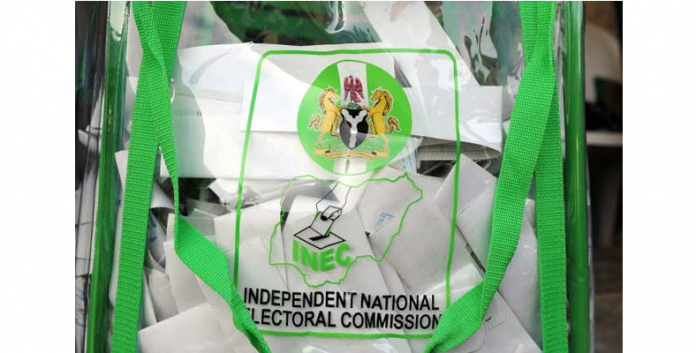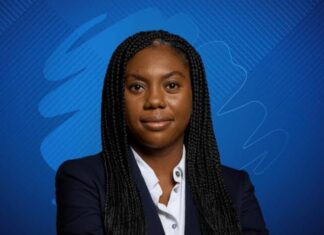By Dr Matthew Ayibakuro
As citizens of Bayelsa go to the polls to elect a new governor at the weekend, the current electoral cycle and campaigns reveal disturbing issues on the state of democratic practice in the state. These issues have ramifications, not just for the current election, but also on the long-term trajectory of democracy and governance in the state, and the bulk starts with the two main political parties. Here is what we know so far.
If you seek respect for democratic values, look away from the political parties
Strong democracies are founded on principles of inclusiveness and quality representation. Political parties are in a key position to safeguard these principles as critical gatekeepers of democracy. The events leading up to, during and after the primaries of the two major parties in Bayelsa State demonstrate the disturbing state of democratic practice within political parties in Nigeria.
Two important factors reflect this, amongst many others. The first is the rapidly increasing influence of money on decisions and processes in political parties. The PDP sold its nomination form for the governorship elections at N20 million – up from N5 million at the last general elections. The APC also sold its nomination form at N20 million, although its expression of interest form was sold at an additional N2.5 million compared to the PDP’s N1 million for the same form. These figures are difficult to fathom in a country struggling to implement a revised monthly minimum wage of N30,000 and where about half of the population live in extreme poverty.
These mammoth sums lead to the exclusion of most of the population from seeking leadership roles through the main political parties, effectively limiting them to smaller parties with no chance to win elections. Moreover, the cost of the forms is just a fraction of the sums of money aspirants have to spend to become candidates. At the indirect primaries of the PDP for instance, aspirants paid sums ranging from a couple of hundreds to over half a million Naira to delegates to vote for them. This is a disturbing trend that will no doubt evolve into vote buying on the streets.
The second factor that reflects the undemocratic state of the main political parties in the state is the degree of dissatisfaction and disgruntlement with the primaries process within each party. Since the primaries, at least one aspirant under the PDP – Joshua Maciver – has moved to the APC, whilst the followers of most other candidates have also openly expressed support for the APC, including taking up positions under the latter’s campaign structure. The most notable of these are the supporters of Chief Ndutimi Alaibe, the former Managing Director of the NDDC. The secretary of his campaign organisation pre-primaries, Prof Seiyefa Brisibe is now the alternate Director-General of the campaign team of the APC flagbearer, David Lyon. Chief Alaibe has a pending suit challenging the primaries process.
On the part of the APC, one of the frontrunners for the party’s ticket, Sen. Heineken Lokpobiri, and his supporters have been conspicuously absent from the party’s campaign activities, due to their disgruntlement with the direct primaries conducted by the party. Also absent is Preye Aganaba, a founding member of the party in the state, who was an aspirant and is also dissatisfied with the process of the primaries. Aganaba and Lokpobiri are both challenging the result of the primaries in court in separate suits.
As well as demonstrating the (un)democratic state of these major political parties, the implication of these cases in court is the possibility that either or both parties might end up without substantive candidates at the polls. In the bigger picture, these events show how the main political parties in Nigeria take away from, rather than enhance democratic practice in Nigeria, especially at the subnational level.
What about the other parties?
Information released by the Independent National Electoral Commission (INEC) indicates that about Forty-Five political parties will be on the ballot for the governorship election. Whilst this shores up the image of multi-party democracy in Nigeria, in practical terms, there is little chance of the other forty-three parties winning at the polls. Their impact throughout the period of the campaigns has also been minimal.
Among those who participated in the debate, the candidate of the Accord Party, Ebizimo Diriyai put up what was considered a strong showing. However, in a democratic setting dominated by affiliation to the two leading parties and mammoth financial outlays, the effect of this on his chances at the polls will be negligible.
The weak state of these political parties in Bayelsa State and elsewhere in Nigeria is a serious cause for concern. The country now effectively practices a two-party democracy, for all intents and purposes. This does not bode well for democratic practice and outcomes, especially in the light of the fact that, as pointed out earlier in this piece, both parties lack democratic depth and are not built on any discernible ideology, principle or policies. They simply serve as conduits to political power and no more.
In the specific case of the Bayelsa State elections however, one or two of these parties might yet play a consequential roll at this year’s governorship election, depending on the outcome of the various pending court cases against the primaries of both the PDP and APC.
Going forward
Beyond the drama and intrigues that the current electoral cycle in Bayelsa State has witnessed, the state faces serious developmental challenges. From issues of insecurity and a deplorable power situation, to perennial problems of unemployment and poor infrastructure, citizens of Bayelsa State will be hoping that the outcome of this election would enhance their wellbeing and overall development. However, if what we know so far about the election is a pointer to the realisation of those hopes, then the next few days have to take a drastically different trajectory.
Making this happen obviously depends on all stakeholders. The political parties, security agencies, civil society and especially the citizens of Bayelsa State have to enrich the democratic process and ensure that it leads to outcomes that benefit the majority and not a few. Perhaps, in accordance with the trends in the campaigns so far, this would be one election where the result and its expected benefits will depend on the personalities and goodwill of the candidates, and not on the strength of democratic institutions and processes. This appears to be the only logical conclusion leading up to the elections. That is, sadly, where democracy is in Bayelsa State right now.













